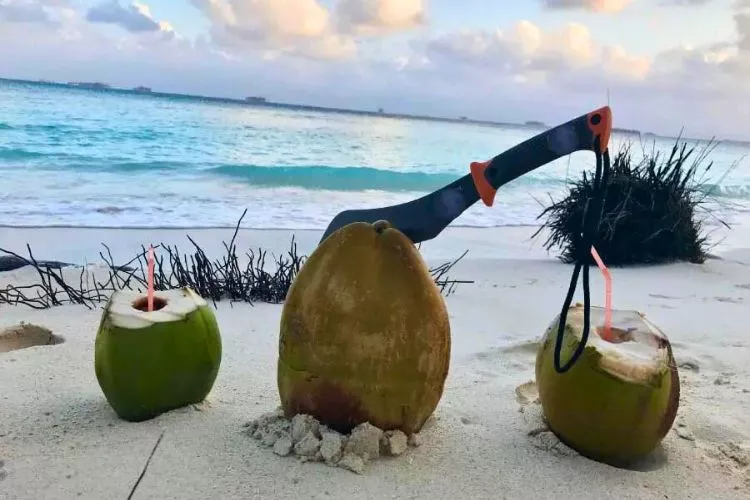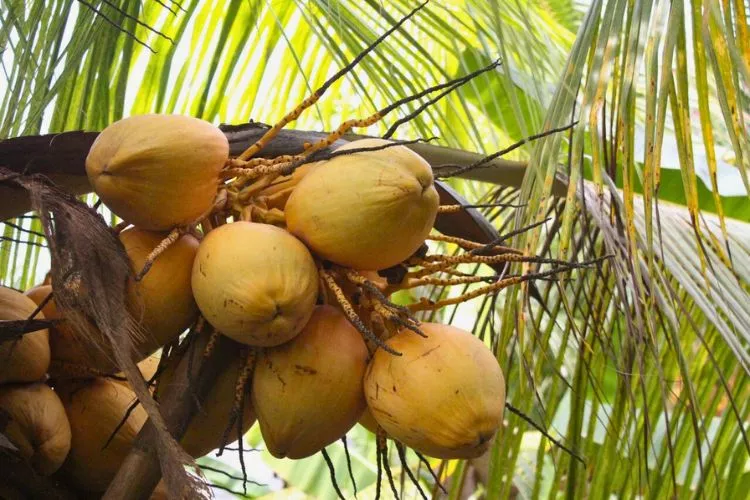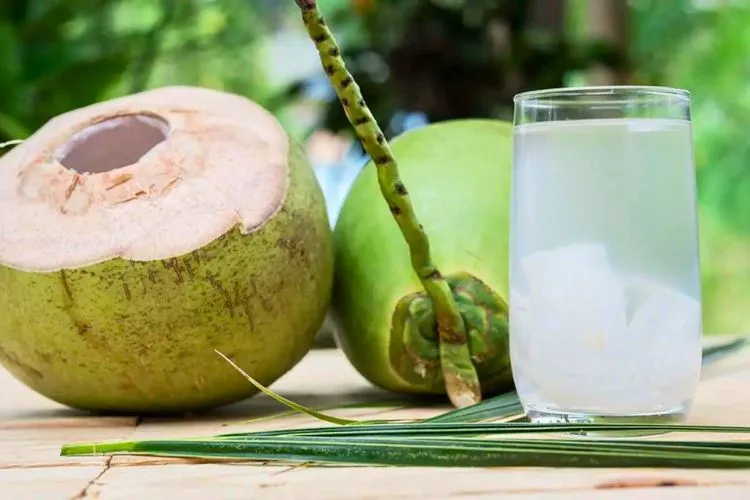Picture yourself stranded on a deserted island, surrounded by swaying palm trees and tropical breezes. As you forage for sustenance, you come across a plentiful source: coconuts.
But is it possible to stay alive by only consuming coconut water? In short, can you survive on coconut water only?
In this eye-opening article, we’ll explore the nutritious properties of this natural drink, the potential health benefits, and the limitations of relying solely on coconut water for survival.

Prepare to dive into the truth behind this popular, yet often misunderstood, tropical staple.
Can you survive on coconut water?
Despite its numerous health benefits, such as hydration, nutrient delivery, and relatively low calorie count, you cannot survive solely on coconut water. To understand why, it’s important to consider what our bodies need for survival.
Beyond hydration, the human body requires a consistent intake of macronutrients (carbohydrates, proteins, and fats), various vitamins and minerals, and dietary fiber to ensure the proper functioning of our organs and systems.
As beneficial as coconut water may be, it falls short of providing the necessary elements in a balanced diet. It contains small amounts of protein and minimal fat and lacks other essential nutrients such as iron, vitamin B12, and adequate dietary fiber.
Over time, relying solely on coconut water could lead to nutritional deficiencies or other health complications related to malnutrition.
Therefore, while coconut water can certainly play a role in hydrating you in emergencies or contributing to a balanced diet, it’s not advisable to attempt to survive solely on this tropical beverage.
How long can you survive on coconut water?
Survival on coconut water could extend from a few days to a week. However, this time frame largely depends on an individual’s health status, environmental conditions, and physical activity.
Notably, overconsumption of coconut water can be a diuretic, which could lead to excessive loss of body fluids and potentially shorten this survival span.

Further factors such as muscle mass and fat reserves would also contribute to the duration as the body gradually transitions into a state akin to semi-starvation.
Please note that this should not be attempted as it can lead to severe health complications, including malnutrition, as coconut water lacks necessary macronutrients and essential vitamins for healthy bodily functions.
What will happen if I drink only coconut water for 7 days?
If you drink only coconut water for 7 days, your health has several implications. On the one hand, coconut water is known for its substantial amount of potassium which can help remove extra sodium from your body.
Consumption of coconut water could lower blood pressure, especially in individuals with high readings. This tropical drink can also help improve hydration levels due to its high electrolyte content.

However, a coconut water-based diet could lead to nutrient deficiencies and might negatively affect your metabolism, energy levels, and immune function.
Coconut water also has a high sugar content, which can cause blood sugar spikes, becoming a concern for those with diabetes or other blood sugar disorders.
In essence, while coconut water has various health benefits, it is not a substitute for a balanced diet and should not be the only thing you consume for a week.
Can you survive on coconut water instead of water?
It is not advisable to completely replace water with coconut water. While coconut water has hydration benefits, it contains sugars and other nutrients that can cause health consequences and may not be suitable for all conditions.
Furthermore, drinking too much coconut water can lead to diarrhea, making it an unsuitable option for survival.

As for how much coconut water per day is safe, there isn’t a one-size-fits-all recommendation. Regular water should still be the primary source of your daily fluid intake, while coconut water can supplement your diet.
It’s important to consider individual factors such as activity levels, climate, and personal nutrient needs when determining the appropriate amount of coconut water.
In summary, while coconut water has its benefits, it should not replace regular water as your primary source of hydration. Consume coconut water in moderation and as an addition to a balanced, healthy diet.
Conclusion:
While coconut water is a tropical delight with hydrating properties and valuable electrolytes, it is not a sustainable source of nourishment to support human survival.
Lacking essential macronutrients, vitamins, and minerals, coconut water provides insufficient nourishment for long-term health.
As such, it should not be relied upon as a sole source of sustenance. Instead, consume coconut water in moderation and as part of a balanced diet to reap its health benefits while ensuring your body receives the nutrients for overall well-being.


